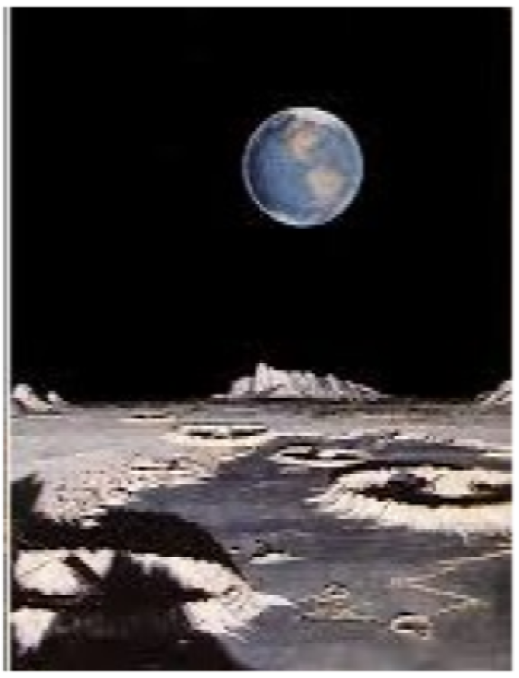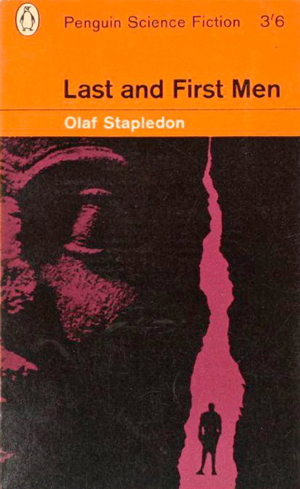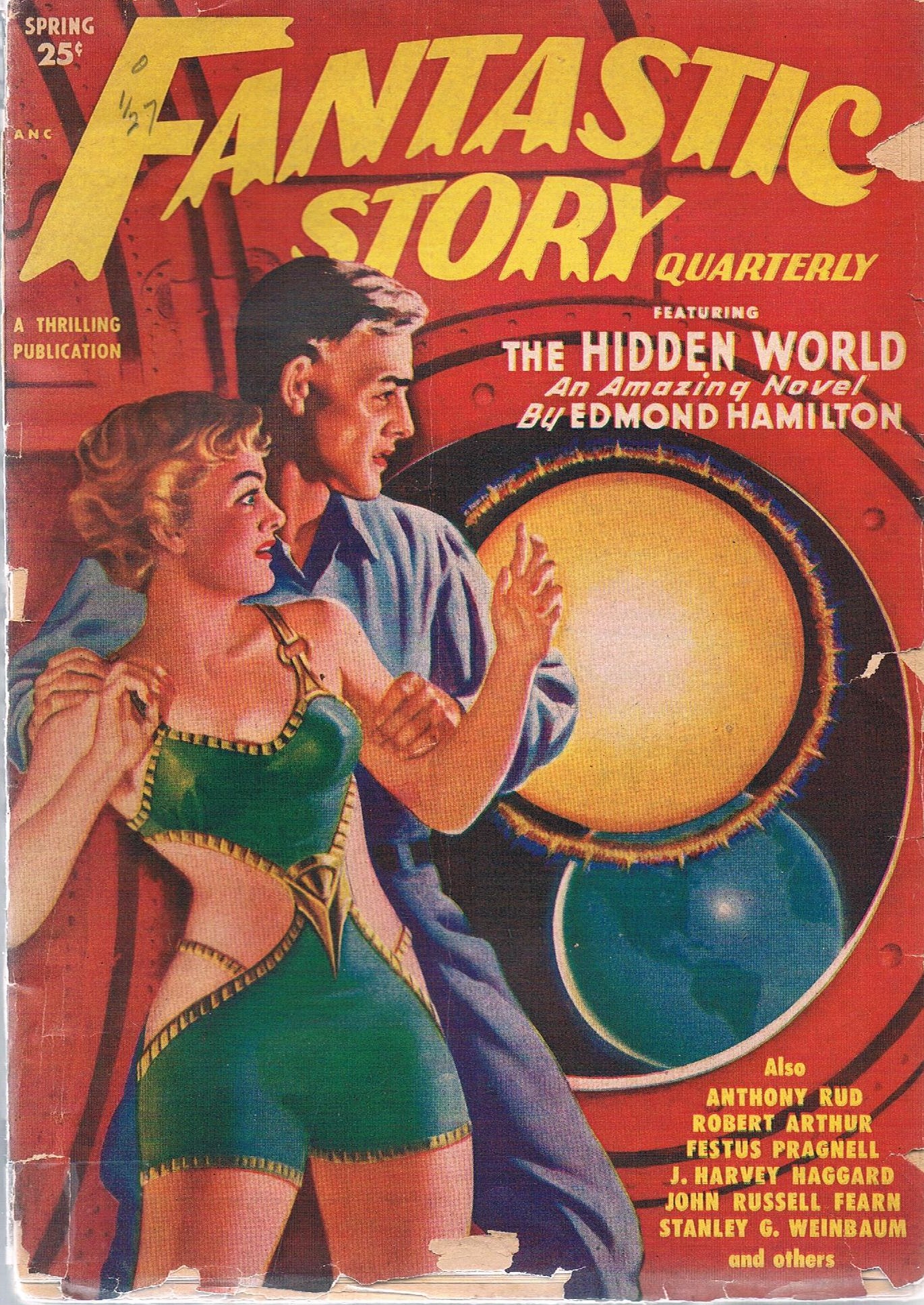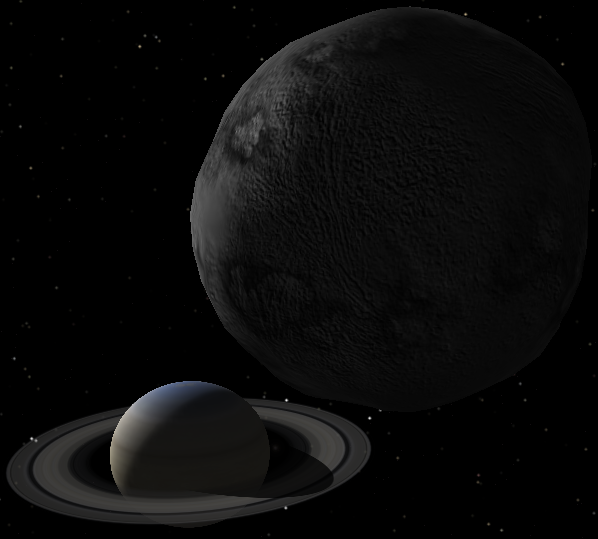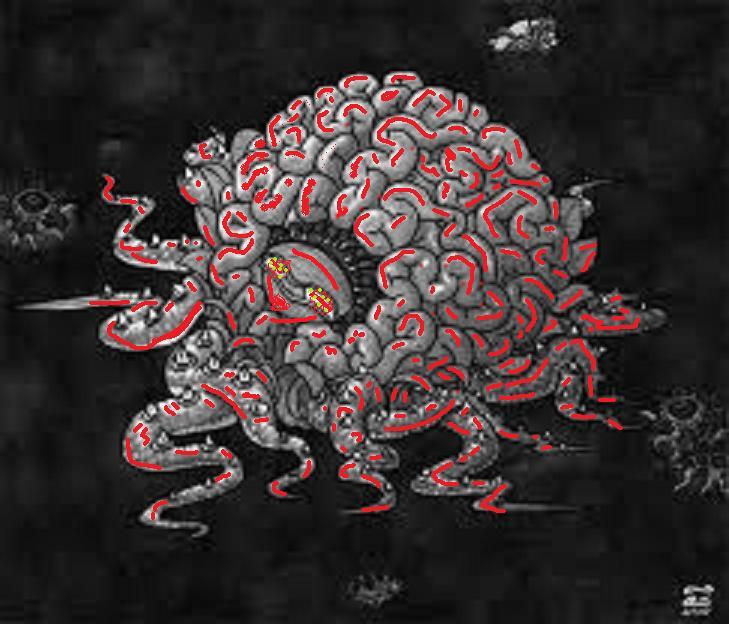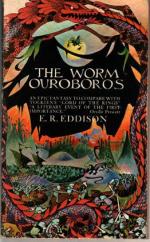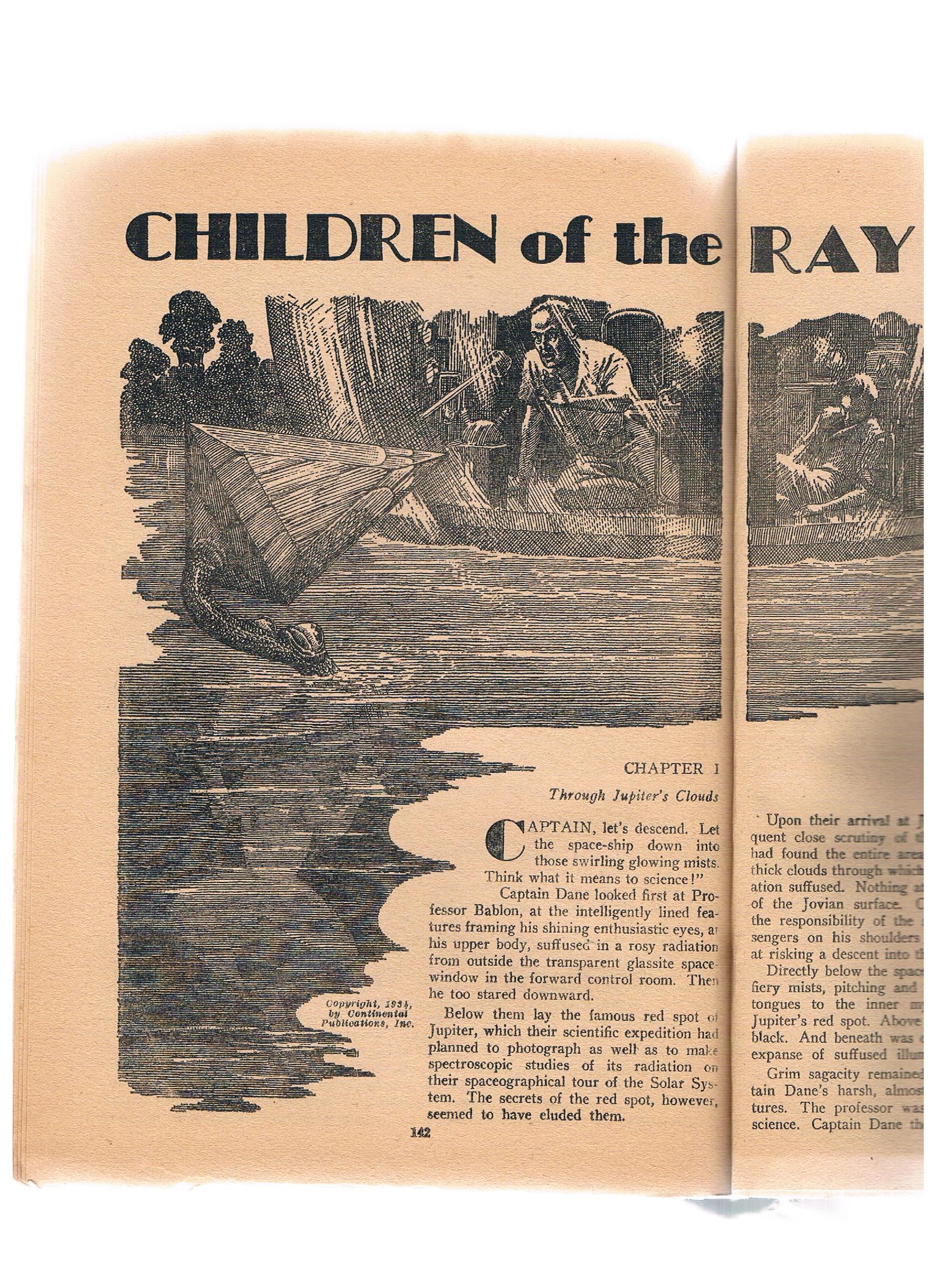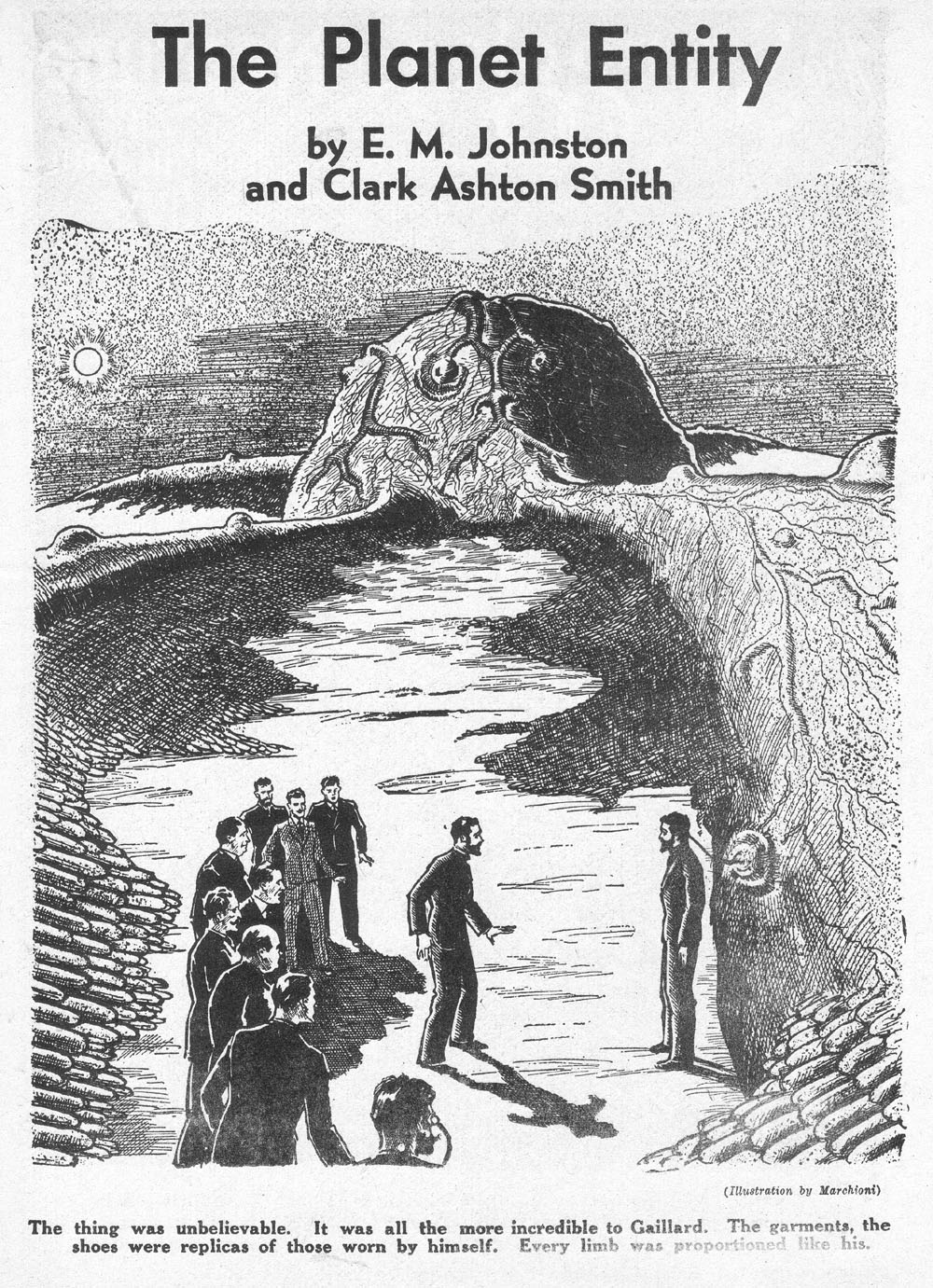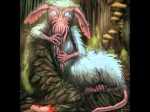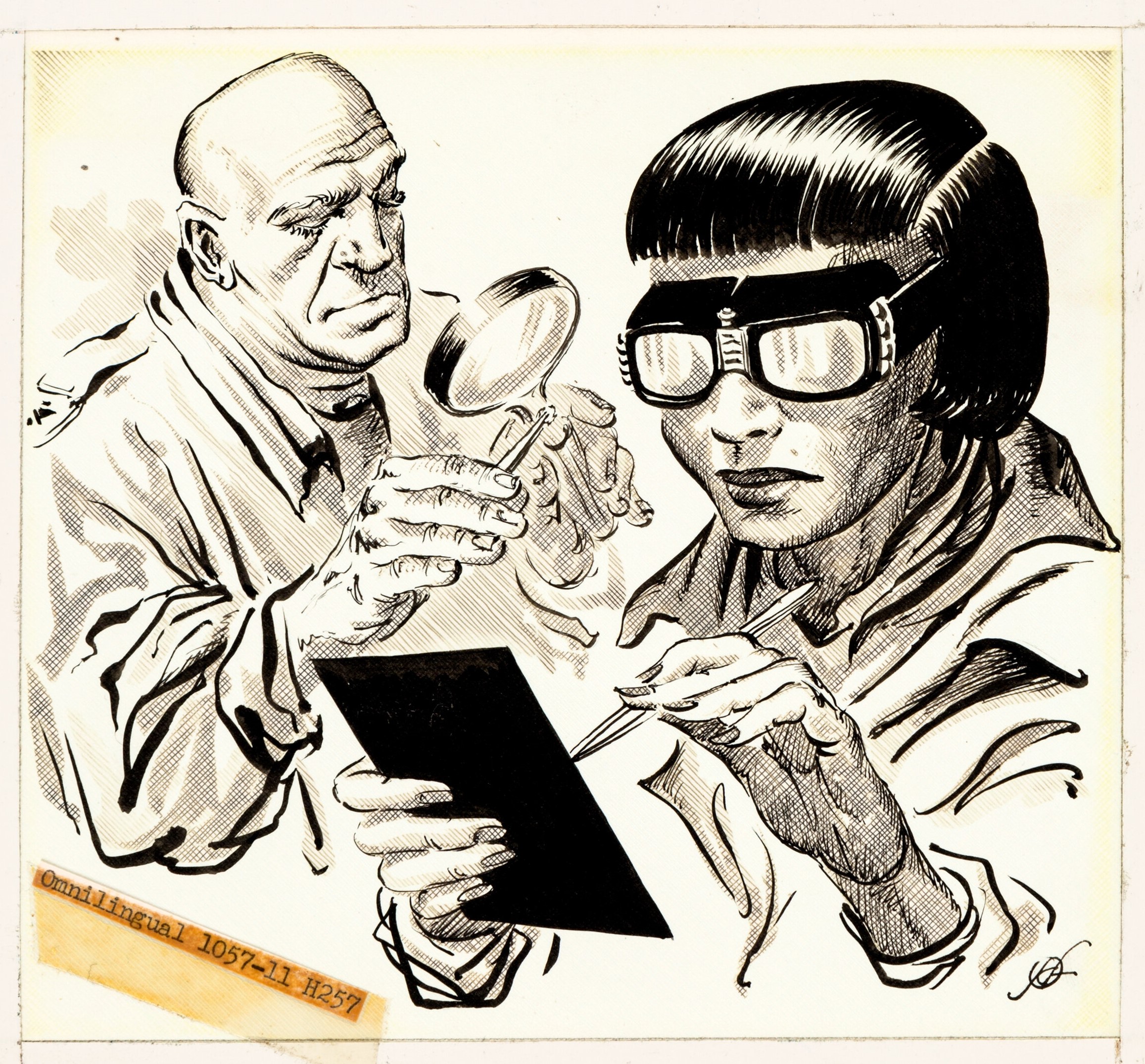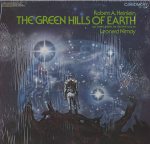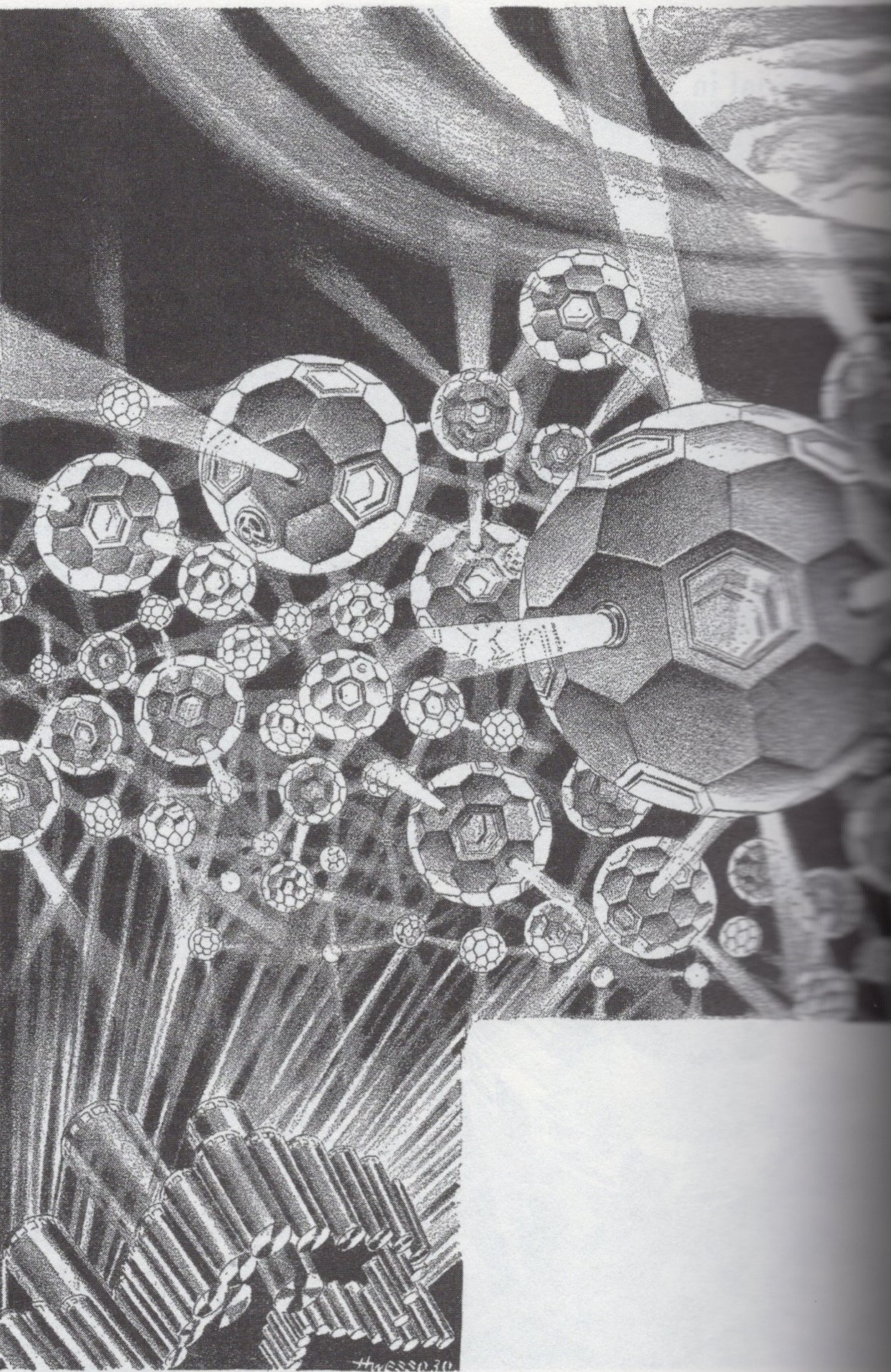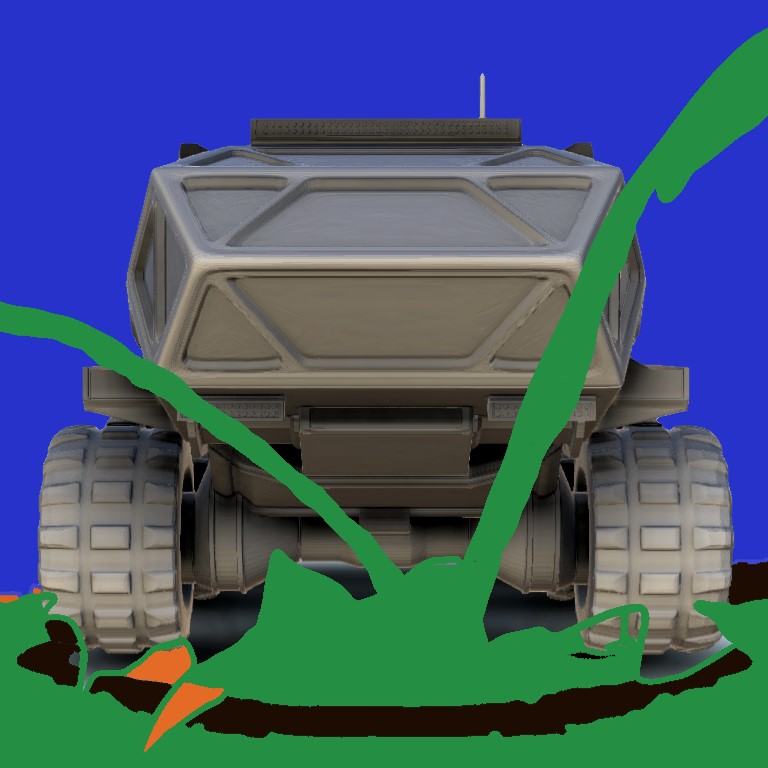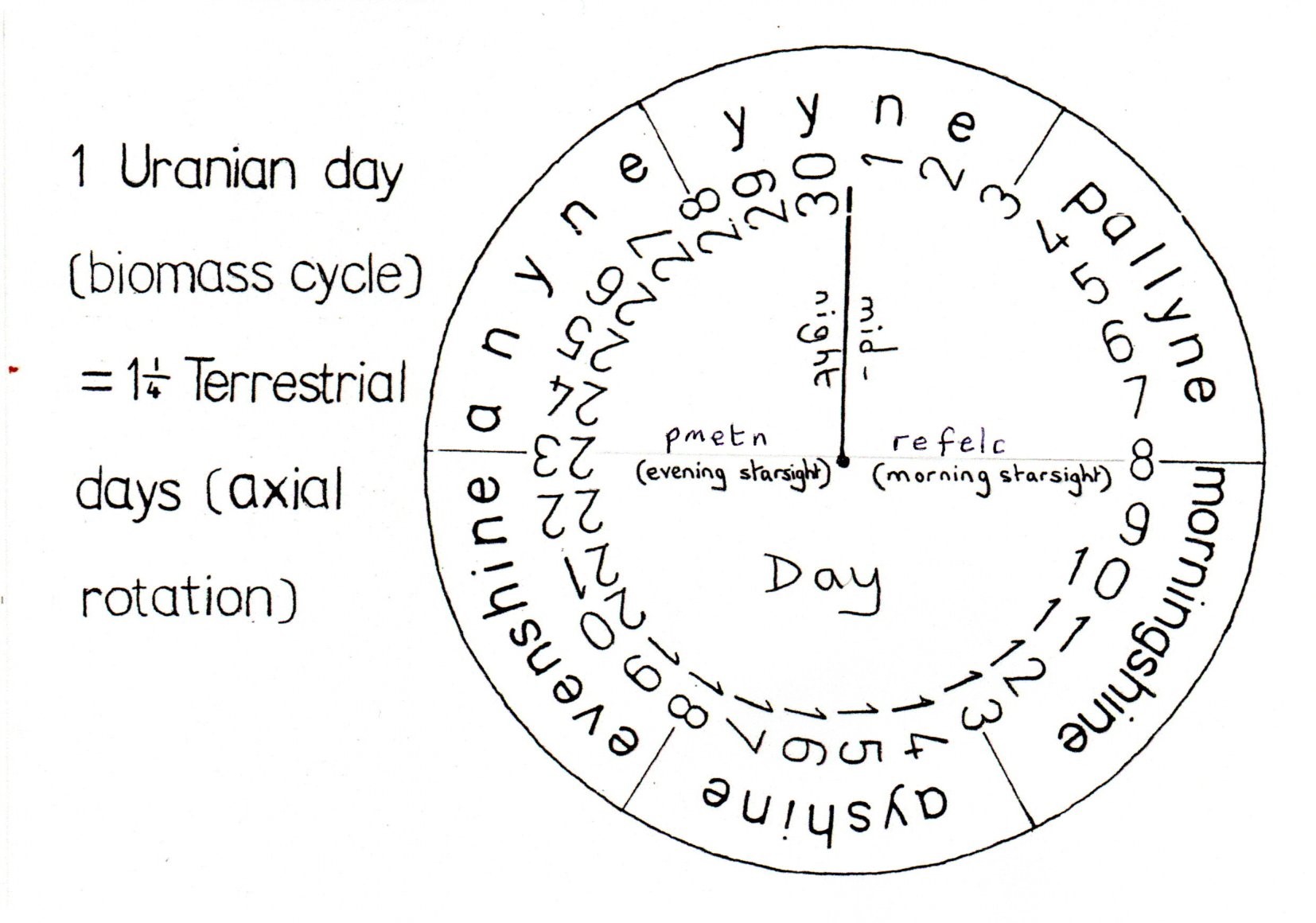saga of re-emergence:
the kuttner-moore venus
Epic, gripping, colourful, profound - the 1940s Venus saga by Henry Kuttner and C L Moore is a "must" read for Old Solar System fans. Clash By Night is a 56-page novella by Kuttner and Moore; Fury, the sequel, a 200-page novel by Kuttner.

Stid: You call the saga "profound", Zendexor. Are you saying that just because it's a classic, and all classics must touch upon something deep in our natures? So that really the mere fact that it's a good read (I know you, I know the way you argue) makes it "profound" insofar as it stirs us...
Zendexor: There'd be something in that, but no, as it happens, I'm saying that the actual ideas in this particular saga are profound.
So you're wrong if you think I'm going to spend a lot of time on the obvious stuff, like demonstrating that it's vivid and well written. You expect good writing from Henry Kuttner and C L Moore. Nothing surprising in that.
And besides, they're working "in the grain" of potent myth, from which the reader expects success. Any passably good writer is off to a good start by setting scenes in the Old Solar System's great hothouse of savagery, the raw, untamed, fecund Venus:
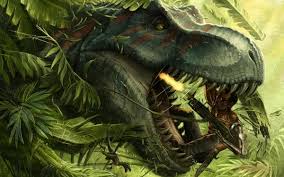
Even on the charts that continent was named Hell - for obvious reasons. Heat was only one of them. And, even with the best equipment, a party exploring the jungle there would soon find itself suffering the tortures of the damned. On the land of Venus, flora and fauna combined diabolically to make the place uninhabitable to Earthmen. Many of the plants even exhaled poisonous gases. Only the protected coastal forts of the Free Companies could exist - and that was because they were forts.
- Clash By Night, chapter III
Harlei: It's as well to remember, Zendexor, that this deadly background is never out of mind even though for much of the saga it's out of view. In other words, this is writing which doesn't just benefit from a "good start" - the archetype is a continual background whisper, a perpetual haunting. And likewise for the quite different scenes down in the peaceful undersea Keeps. From the alternation between these contrasting environments we get a great show, a kaleidoscopic display of colour and vividness, without which the profundity of the ideas would not count for anything.
Zendexor: You don't have to worry, either of you. I know that it all works together. The saga - I've called it the Saga of Re-Emergence - is deep stuff in every sense of the word.
Briefly, here's the background:
The events of Clash By Night - and, centuries later, those of Fury - take place long after the destruction of Earth by the misuse of nuclear power.
Thanks to the invention of space travel, the loss of Earth had not meant the total extermination of the human race, but it had led to a drastic retreat, both environmental and spiritual.
Man survives on Venus - but not on land.
In the words of the future historian, in the introduction to Fury:
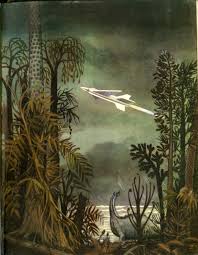
Man never knew the fury of the Jurassic - on Earth. On Venus it was worse. Man had no weapons to conquer the Venus lands. His weapons were either too weak or too potent. He could destroy utterly, or he could wound lightly, but he could not live on the surface of Venus. He was faced with an antagonist no man had ever known.
He faced fury... And he fled.
There was safety of a sort undersea... science could build artificial environments on the ocean bottom. The impervium domes were built. Beneath them the cities rose.
The cities were completed... As soon as that happened, dawn on Venus changed to twilight. Man had returned to the sea from which he sprang.

We are never far, in this saga, from the poignant image of a decadent human race enjoying its retreat to the womb-like safety of the Venusian waters. It must have been a necessary move, even in some ways a positive step, for a while.
...The undersea lights flamed brighter and brighter, turning the great Keeps into enchanted citadels beneath the shallow sea.
But psychologically, physically and economically, Man needs a land frontier. Otherwise the race will die. Events must therefore occur, certain people - special people - must do things to cause change.
Here we get to the originality, the profundity of the saga: for in most cases these key individuals, these destined movers, act from motivations which aren't aligned with the consequences of their actions. In fact, the impression we get is that they neither understand nor care about the importance of what they are doing.
And via the saga's intermittent soaring overview we are taken up to a vantage point in which we see with unusual vividness and clarity just how stark the disjunction is between the motivations of individual strivers and the destiny of the species.
We are given a kind of double vision: we see through a protagonist's individual eyes, and at the same time we see that individual's life through the eyes of the later, dispassionate historian, in such a way as to enhance the picture with the added colour of destiny.
This double-level narrative is set in motion right from the start, in the introduction to Clash By Night:

A half mile beneath the shallow Venusian Sea the black impervium dome that protects Montana Keep rests frowningly on the bottom. Within the Keep is carnival, for the Montanans celebrate the four-hundred-year anniversary of Earthman's landing on Venus. Under the great dome that houses the city all is light and colour and gaiety. Masked men and women, bright in celoflex and silks, wander through the broad streets, laughing, drinking the strong native wines of Venus. The sea bottom has been combed, like the hydroponic tanks, for rare delicacies to grace the tables of the nobles.
Through the festival grim shadows stalk, men whose faces mark them unmistakably as members of a Free Company. Their finery cannot disguise that stamp, hard-won through years of battle. Under the domino masks their mouths are hard and harsh. Unlike the undersea dwellers, their skins are burned black with the ultraviolet rays that filter through the cloud layer of Venus. They are skeletons at the feast. They are Free Companions -
Clash By Night is an adventure set during the period when the mercenary Free Companies maintain the balance of power between the Keeps.
The mercenaries are based in forts on the coasts of the hellish Venusian continents - and these precariously maintained forts are mankind's sole outposts on land. We're shown what happens when two shipwrecked mercenaries - veteran and novice - have to fight their way through a length of jungle.
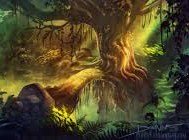
"Half a mile of forest equals a hundred miles of beach hiking," he remarked.
"That bad, sir? I've never tackled it."
"Nobody does, unless they have to. Keep your eyes open and your gun ready. Don't wade through water, even when you can see bottom. There are some little devils that are pretty nearly transparent - vampire fish. If a few of those fasten on you, you'll need a transfusion in less than a minute. I wish the volcanoes would kick up a racket. The beasties generally lie low when that happens."
They probe and hack and fight their way, through manifest perils and false alarms, under the eerie drumming of rain on the forest canopy far above.
...Sinkhole and quicksands were frequent, and so were traps, camouflaged pits b built by mud-wolves - which, of course, were not wolves, and belonged to no known genus. On Venus, the fauna had more subdivisions than on old Earth, and lines of demarcation were more subtle...
...Clearings were unusual in the forest. There was one here, twenty feet wide, slightly saucer-shaped. Scott gingerly extended the pole and probed. A faint ripple shook the white mud, and almost before it had appeared the captain had unholstered his pistol and was blasting shot after shot at the movement.
"Shoot, Kane!" he snapped. "Quick! Shoot at it!"
Kane obeyed, though he had to guess at his target. Mud geysered up, suddenly crimson-stained...

The jungle trek is an episode in the clash between two companies of mercenaries, hired respectively by Montana Keep and Virginia Keep. We get good views of the strategies, the actual battle, and the personalities involved, but over and above it all we see the context - that the Free Companions are mercenaries because they are unsuited by temperament for the hedonistic life of the undersea Keeps; they prefer the open-air life with all its hazards. They are aware of how ultimately meaningless is their loyalty to a mercenary group, and they do not try to make themselves out to be heroes. And yet -
...It is fairly well known, says the Historian, that only one factor saved the Keeps from annihilating one another - the gentlemen's agreement that left war to the warriors, and allowed the undersea cities to develop their science and social cultures...
Harsh, gallant, indomitable, serving the god of battles so that it might be destroyed - working towards their own obliteration - the Free Companions roar down the pages of history...
Along with such epic irony comes a level of characterisation far above average for 1940s science fiction. Brian Scott, the restless protagonist of Clash By Night, is a Free Companion who becomes torn between two cultural worlds embodied in two women, his "free-wife" Jeana and the hedonistic Keep girl, Ilene, who asks him:
"Just how important is it to you? The Free Companions?"
Scott opened his eyes and grinned at the girl. He looked unexpectedly boyish.
"Damn little, really. It has emotional appeal. Intellectually, I know that it's a huge fake. Always has been... Fighting's doomed. So we've no real purpose. I suppose most of us know there's no real future for the Free Companions. In a few hundred years - well!"
"And still you go on. Why? It isn't money."
"No. There is a... a drunkenness to it..."
The story is woven around Scott's personal dilemma, and at the same time around the literal battle he has to fight against the mercenaries hired by Virginia Keep. The scene at the end of the second chapter where he thinks he is rejecting Jeana, while she deep down knows him better than he knows himself, is superbly handled.
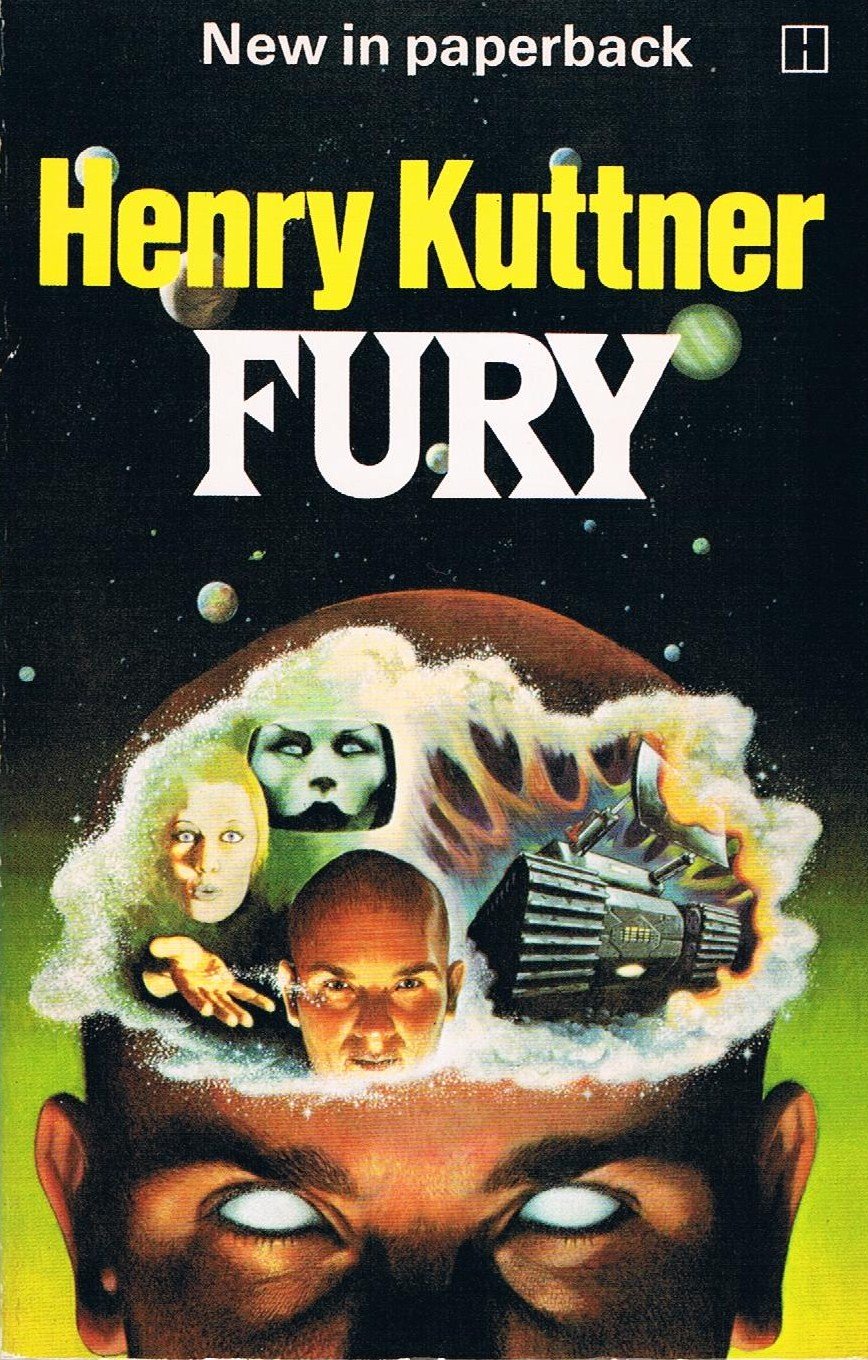
Fury is even more of a character study than Clash By Night - while also being an epic of action and adventure. The protagonist, Sam Reed, is a villain-hero on the scale of Gully Foyle in The Stars My Destination.
We are now perhaps a couple of centuries after the extinction of the Free Companions. Society has become stratified with a caste of "Immortals" - long-lived genetic mutations - ruling the masses who have normal life-spans. It seems that the Immortals are accepted in return for providing the "bread and circuses" to make life easy and sufficiently pleasant for the majority. But as the blurb on my copy says:
"Sam Reed's insane father had him mutilated as a baby so that he doesn't realize he's an Immortal until he reaches the age of eighty. Then he goes looking for revenge..."
Actually the "mutilation" seems to have consisted merely in making Sam into a short, hairless figure rather than the usual lean build of the Immortals. He is still, in his unusual way, an attractive figure - an outcome which his monster father did not foresee. Yet what was done to the infant is enough to distort his entire life. Picture the bald, stocky Sam Reed, who looks nothing like the tall, slim Immortals, finally realizing that he is one of them genetically yet an outcast from them culturally... and all because his mother died in childbirth and his father vented his grief and fury on the baby.
Picture him, also, before that time - when he has not yet found out that he is an Immortal; when his anger is a rage against intangibles...
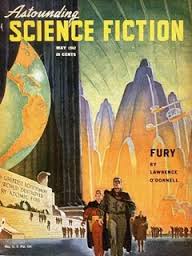
...There have always been angry men in the world. Sometimes the anger, like Elijah's, is the fire of God, and the man lives in history as a saint and a reformer whose anger moved mountains to improve the lot of mankind. Sometimes the anger is destructive, and great war-leaders rise to devastate whole nations...
One great trouble with Sam Reed was that didn't know what really ailed him. He had long struggles with his own conscience, in which he tried to rationalise his mind out of its own unconscious knowledge of its lost heritage...
He takes to crime, inevitably. The society of the Keeps is not so utopian as to lack room for the fringe activities of a criminal.
...His profound contempt for the people he victimised, directly or indirectly, was one with the contempt he felt for his associates. Sam Reed was not in any sense a nice man.
Even to himself he was unpredictable. He was the victim of his own banked fire of self-hatred, and when that fire burst forth, Sam Reed's lawlessness took very direct forms. His reputation became tricky. No one trusted him very far - how could they, when he didn't even trust himself? - but his hand and his mind were so expert that his services were in considerable demand among those willing to take the chance that their careful plans might blow up in bloody murder if Sam Reed's temper got the better of him. Many were willing. Many found him rather fascinating.
___________________________
For life in the Keeps had levelled off to an evenness which is not native to the mind of man. In many, many people something like an unrecognised flicker of the rebellion which consumed Sam Reed burned restlessly, coming to the surface in odd ways. Psychological projective screens took strange forms, such as the wave of bloodthirsty ballads which was sweeping the Keeps on a high tide of popularity when Sam was in his formative years. Less strange, but as indicative, was the fad for the near-worship of the old Free Companion days, the good old days of man's last romantic period...
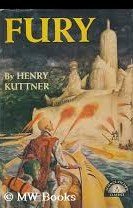
And it turns out that one of the Free Companions, an Immortal, is still alive. He wants to colonise the land; he gets nowhere until Sam is able to make us of him, for his own purposes, without sharing one jot of his ideals. As we are swept along by the story we watch the build-up of the ingredients of Man's revolutionary re-emergence and then the explosion of that renewal itself, centred around the monomaniacal force of Sam Reed.
Stid: I suppose it was clever of the author to compose his tale around such a sinister protagonist. It certainly means there's no chance of it being bland. No way is Sam Reed the kind of cardboard hero we get so much of. Though maybe the achievement would have been all the greater, if the writer could have succeeded in portraying someone who is both interesting and good.
Zendexor: I think you're overlooking something, Stid. The character of Sam Reed is well chosen not just because it is a change from colourless heroes. It also helps to emphasize the hugeness of historical processes - their separation from ordinary motive. Sam achieves a colossal good without meaning to. He turns out in fact to be the saviour of humanity, insofar as no one but he could have galvanised the race to emerge from the comfortable stagnation of the Keeps to face the perilous but vital challenge of the Venusian land surface.
And so, echoing in the reader's mind, there remains the saga's ultimate theme, embodied in the anachronistic life-styles of the Free Companions and the subsequent egotistic fanaticism of Sam Reed: the theme of huge blind wrongs finally adding up to a right.
Alfred Bester, The Stars My Destination (1956); Henry Kuttner and C L Moore, "Clash By Night" (Astounding, March 1943; reprinted in The First Astounding Science Fiction Anthology, ed. by John W Campbell; Henry Kuttner, Fury (Astounding, May-July 1947; published in book form 1950). (The magazine episodes of the Saga of Re-Emergence were published under the pen-name "Lawrence O'Donnell".)
Note: some sources suggest that "Clash By Night" should be entirely credited to C L Moore, and Fury partly credited to her. Since Kuttner and Moore were married to each other, and close collaborators, it is hard to sort out who wrote what!
The literary framing device in Clash By Night is mentioned in the OSS Diary for 13th July 2016.
See the extract, Going carefully on Venus.









































